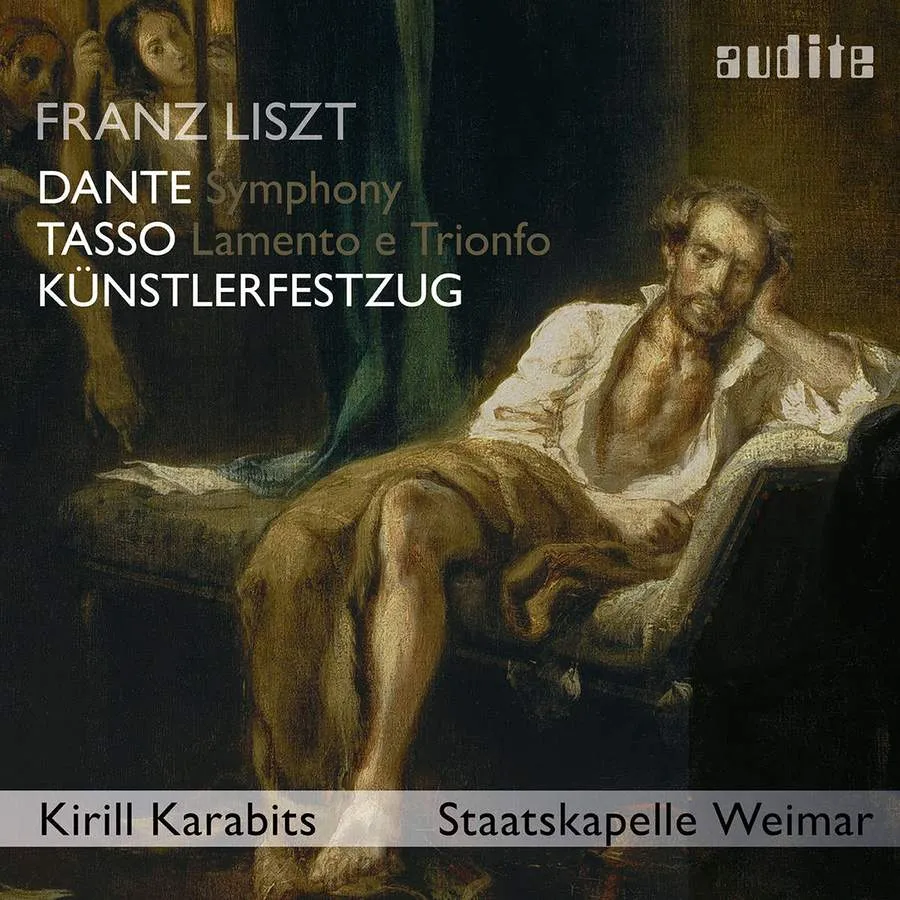
Liszt Künstlerfestzug zur Schllerfeier; Tasso. Lamento e Trionfo; A Symphony to Dante's 'Divinas Commedia' Staatskapelle Weimar/Kirill Karabits Audite 97.760 79.02 mins
Franz Liszt’s orchestral works are not the most subtle creations in the world. Often the orchestration seems only half-suited to music that can sound conceived in terms of pianistic figuration. However, if you are curious about these under-recognised pieces and fancy plunging into some febrile mid-19th-century sensibility, this disc is a good place to start. The Staatskapelle Weimar has a special closeness to Liszt’s heritage: upon retiring from the concert platform he lived in that city from 1848 to 1861, devoting himself to composition and teaching.
These works all date from the Weimar years and each is associated with a bygone literary genius. The first translates as ‘Artists’ Gala Procession for the Schiller Celebrations’; the second, Tasso, started life as an overture to Goethe’s play of that title; and the Symphony to Dante’s Divine Comedy was the largest product of a long fascination that Liszt held for that poetic tract.
Kirill Karabits and the Staatskapelle offer powerful and well-balanced accounts, taking the works on their own terms and drawing out the best they have to offer. The pieces can sound portentous and pompous, yet suddenly break into moments of ethereal beauty, and the orchestra’s special sound and seamless ensemble make them unusually sympathetic. Silky, sepia-toned strings unify with dusky and eloquent woodwind, edgy brass playing and delectable harps, while Karabits handles the gear-changes with conviction. In the Symphony’s Magnificat, the two choruses step aboard and soar, as if a natural part of the orchestra. Recorded sound is warm and pleasing.
Read more reviews of the latest Liszt recordings here
Find out more about Liszt and his works here
Jessica Duchen
